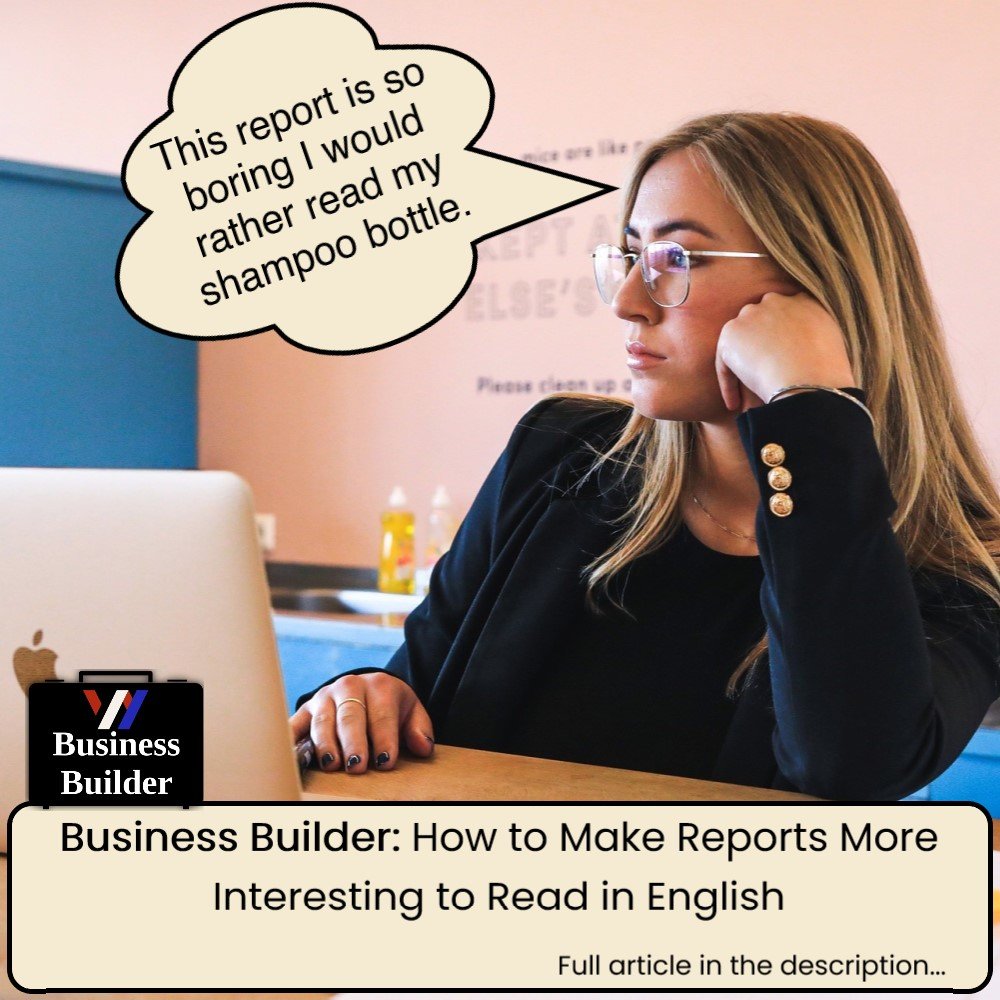Business Builder: How to Make Reports More Interesting to Read in English
No matter how advanced your English is, it can be a real challenge to make paperwork interesting to read. It is especially difficult to do when English is your second language. So, I’m here to give you some very simple tips that will help you create paperwork people want to read.
Organise Your Writing with Ordinal Adverbs
Ordinal what? Ordinal adverbs are words that put your main points in order like these:
Firstly, secondly, thirdly…
Initially, additionally, finally…
At first glance, on second glance, upon detailed inspection… (a glance is a quick look at something)
Ordinal phrases are great for readers because they give a logical order to your information and work as connectors holding larger ideas together in a way readers understand. They also sound professional but conversational, which is an excellent style for modern business.
Avoid Overly Complicated or Old Fashioned Language
Every business has its own vocabulary, and your readers will know this language too. But, there are some words and phrases that are used out of habit in business settings which don’t help readability for non-native English speakers. People often use them to sound “more professional”. Here are some examples:
Furthermore
Hence
Wherefore
Notwithstanding
I also recommend, when writing for non-native English speakers, that you don’t use unnecessarily complicated words for things you could easily explain with more simple words, such as:
Simultaneously -> at the same time
Remuneration -> pay / salary
Precipitation -> rain
Of course, if you are a meteorologist (weather scientist) your colleagues will understand precipitation. But, if you work for a mobile phone company, just say rain!
In Summary
If you want to make your reports more interesting to read in English, keep these things in mind:
Clarity is more important than using impressive words.
Think about who reads your work and their English level.
Avoid old-fashioned and overly complicated phrases.
Use linking and ordering phrases to keep things interesting and conversational.
If you have found these suggestions helpful, give this article a like, share it, and write a comment so I know. I might just add some more useful tips next week!

